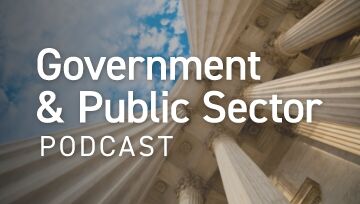The Financial Accounting Standards Board (FASB) issued two Accounting Standard Updates (ASUs) in the first quarter of 2024, while the Government Accounting Standards Board (GASB) did not issue any new statements. The latest issue of the Rundown features a summary of these new standards. For summaries of standards issued in previous periods, view our previous rundowns here. In addition, we’ve got a comprehensive listing of all standards newly effective for calendar year-end December 31, 2024 broken down by public business entities and private entities.
First Quarter 2024 Newly Issued Standards
Scope Application of Profits Interest and Similar Awards
Currently, profit interests pose several issues for practitioners. First, there has been a lack of prescriptive authoritative guidance. Second, determining the proper accounting involves judgment. Due to the lack of prescriptive authoritative guidance, interpretive guidance has developed over time with diversity in practice. With ASU 2024-01, the FASB is catching up to the interpretive guidance and hopefully reducing diversity in practice.
Many private entities issue profit interest to align compensation with an entity’s performance and allow holders to participant in the future profits and/or equity appreciation of the entity. Profit interests are not defined within GAAP and differ from other capital interests because profit interests only participant in future profits and/or equity appreciation and do not have rights to existing net assets like other capital interests do (e.g., common stock). This can make it difficult to determine if profit interests should be accounted for as a share-based payment under ASC 718 or like bonuses under ASC 710.
ASU 2024-01 adds 4 illustrative examples (example 10 at ASC 718-10-55-138, case A-D) that provides authoritative guidance for when profit interests should be accounted for under ASC 718.
An instrument is within the scope of ASC 718 if a grantor acquires goods or services by either:
- Issuing shares, options or other equity instruments; or
- Incurring a liability that meets either of the following:
- The amounts are based, at least in part, on the price of the entity’s shares or other equity instruments; or
- The awards require or may require settlement by issuing the entity’s shares or other equity instruments.
The examples in cases A-D are summarized below. Entity X is a partnership that granted a new class of units (Class B) in exchange for services.
| Case | Scope of ASC 718 |
| Case A | |
|
Yes |
| Case B: Same assumptions as Case A, except | |
|
Yes |
| Case C: Same assumptions as Case A, except | |
|
Yes |
| Case D: Same assumptions as Case A, except | |
|
No
|
Effective Date and Transition Requirements:
Public business entities: Fiscal years beginning after December 15, 2024, and interim periods within those annual periods
All other entities: Fiscal years beginning after December 15, 2025, and interim periods within those annual periods
Early adoption is permitted. If early adopted, then you must do so in the first quarter. The amendments can be applied retrospectively or prospectively to profit interests granted or modified after adoption.
Codification Improvements—Amendments to Remove References to the Concepts Statements
The FASB’s Conceptual Framework establishes concepts that the Board considers in developing standards of financial accounting and reporting. However, FASB Concepts Statements are nonauthoritative. References to the Concepts Statements in the Codification could imply that the Concepts Statements are authoritative. In addition, the Codification references Concepts Statements that are sometimes superseded. This Update amends the Codification to remove references to FASB Concepts Statements and is not expected to have a significant effect on current accounting practice.
Effective Date and Transition Requirements:
Public business entities: Fiscal years beginning after December 15, 2024
All other entities: Fiscal years beginning after December 15, 2025
Early adoption is permitted. If early adopted, then you must do so in the first quarter. The amendments can be applied retrospectively or prospectively.
List of Newly Effective Standards This Busy Season
Calendar Year-end Public Companies
The following ASUs are effective for public companies for calendar year 2024:
- ASU 2021-01: Reference Rate Reform: Scope
- ASU 2022-06: Reference Rate Reform: Deferral of Sunset Date
- ASU 2020-06*: Debt-Debt with Conversion and Other Options (Subtopic 470-20) and Derivatives and Hedging-Contracts in Entity’s Own Equity (Subtopic 815-40): Accounting for Convertible Instruments and Contracts in an Entity’s Own Equity
- ASU 2022-03: Fair Value Measurement of Equity Securities Subject to Contractual Sale Restrictions
- ASU 2022-04**: Disclosure of Supplier Finance Program Obligations
- ASU 2023-01: Common Control Leasing Arrangements
- ASU 2023-02: Accounting for Investments in Tax Credit Structures Using the Proportional Amortization Method
- ASU 2023-07: Segment Reporting (Topic 280): Improvements to Reportable Segment Disclosures
Calendar Year-end Private Companies
The following ASUs are effective for private companies for calendar year 2024:
- ASU 2021-01: Reference Rate Reform: Scope
- ASU 2022-06: Reference Rate Reform: Deferral of Sunset Date
- ASU 2020-06*: Debt-Debt with Conversion and Other Options (Subtopic 470-20) and Derivatives and Hedging-Contracts in Entity’s Own Equity (Subtopic 815-40): Accounting for Convertible Instruments and Contracts in an Entity’s Own Equity
- ASU 2021-08: Accounting for Contract Assets and Contract Liabilities from Contracts with Customers
- ASU 2022-01: Fair Value Hedging – Portfolio Layer Method
- ASU 2022-04**: Disclosure of Supplier Finance Program Obligations
- ASU 2023-01: Common Control Leasing Arrangements
Standards Not Yet Effective***, But That You Should Consider Early Adopting
- ASU 2018-12: Accounting for Long-Duration Contracts
- ASU 2022-05: Transition for Sold Contracts
- ASU 2022-03: Fair Value Measurement of Equity Securities Subject to Contractual Sale Restrictions
- ASU 2023-02: Accounting for Investments in Tax Credit Structures Using the Proportional Amortization Method
- ASU 2023-05: Recognition and Initial Measurement of Joint Ventures
- ASU 2023-08: Accounting for and Disclosure of Crypto Assets
- ASU 2023-09 : Improvement to Income Tax Disclosures
*Effective for SRCs. Previously effective for all other public entities.
**Amendment on rollforward information is effective for fiscal years beginning after December 15, 2023.
***Not yet effective for private entities



